Child's note on post-war hardships found in door panel
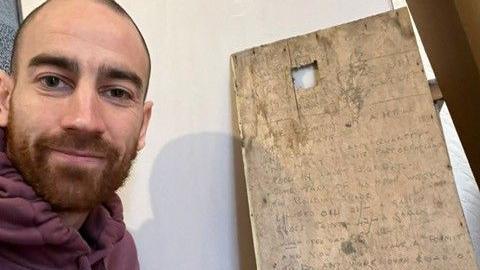
Tom Yuen says he was drawn to the panel, which feels like a "handshake through history"
- Published
A teenager's account of the difficulties of post-war life has been found hidden in a door panel that was saved from the tip.
The handwritten note tells of the daily six-hour power cuts, no coal "in any quantity" and short supply of food.
Tom Yuen, 31, from Cardiff, was searching for second hand door panels when he found the note, from 1947, which he says felt like a "handshake through time".
"I think you can't really compare life today to then, it really puts life into perspective," said Mr Yuen.
Postcard finally arrives 121 years after it was sent
- Published21 August 2024
Letter arrives more than 100 years late
- Published16 February 2023
Postcard delivered 121 years late reunites family
- Published29 August 2024
The note says: "To the person who will read this, Steve Alford hopes that things are much better now.
"Peter Cowley, now age 16 years, also wishes the same to you."
Mr Yuen was given the door panel for free from a paint stripper yard in Cardiff, where it faced being binned.
He then found what it concealed.
"I was drawn to it," said Mr Yuen.
"Selfishly, I was considering getting it (the note) framed, but I think it belongs to all.
"It's quite sad really, dated two years after the war, they are cold, have no food, there is no central heating.
"I think you can't really compare life today to then, it really puts life into perspective."
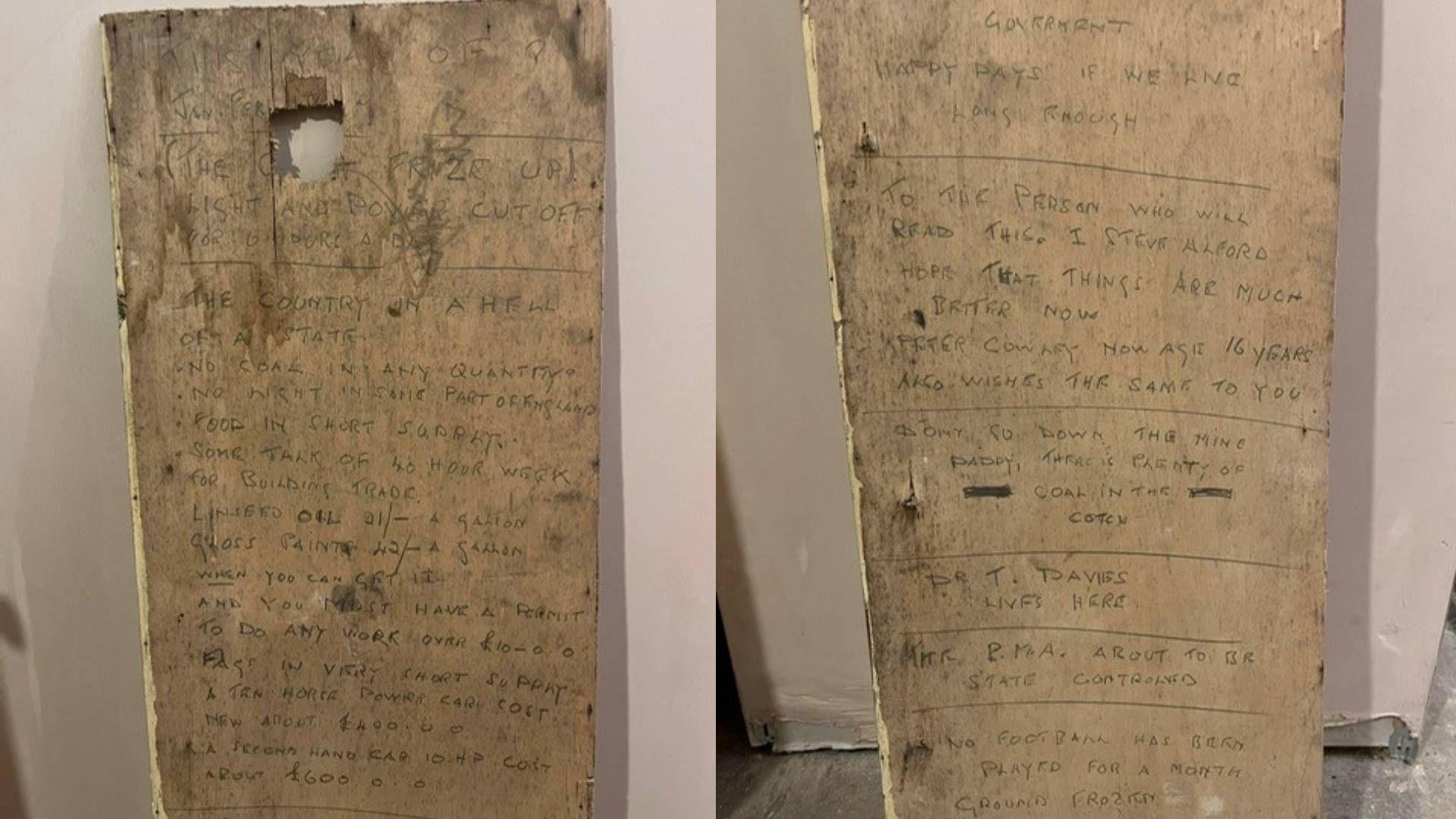
Tom Yuen says he was given the panel for free from a paint stripper yard in Cardiff
What else was happening in 1947?
Post-war rationing was continuing and 1947 saw one of the worst winters in living memory with 10ft (3m) snow drifts.
Roads and rail lines were blocked across the UK, and day-time blackouts were introduced with coal running low.
Miners couldn't get to work and factories became silent amid concerns the country was facing "complete disaster".
That led to a massive thaw in March, resulting in a "once-in-a-hundred-years" flooding across southern England.
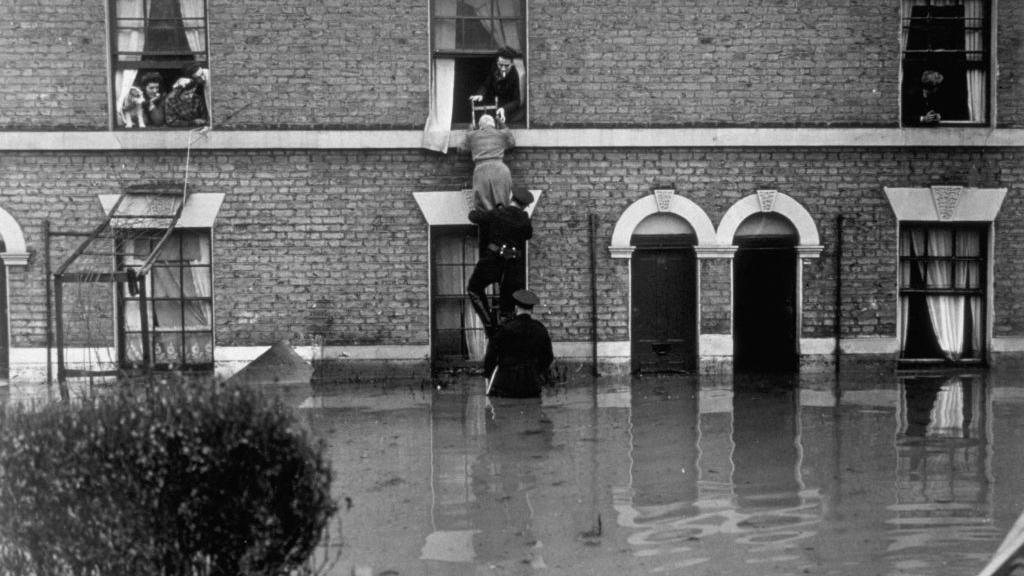
Thaw from heavy snowfall saw people being rescued from their homes in Clapton, London, in 1947
Historian Dr Elin Jones said people would have felt the impact of World War Two for another seven years, with rationing continuing until 1954.
"The great freeze which they speak of kind of reflects what we're experiencing now, but there is no comparison to their struggles," she said.
The message also shows the strength of workers unions at the time, said Dr Jones, as the 40 hour working week and minimum wage was on the horizon.
"It was usual to work six out of seven days of the week back then, the idea of capped hours was a luxury," she said.
As many companies now look towards a four day working week, Dr Jones says the panel shows how it was a "very different world in terms of work and how we work".
"Interestingly, there was no mention of women and housework, which would have looked very different to today," Dr Jones added.
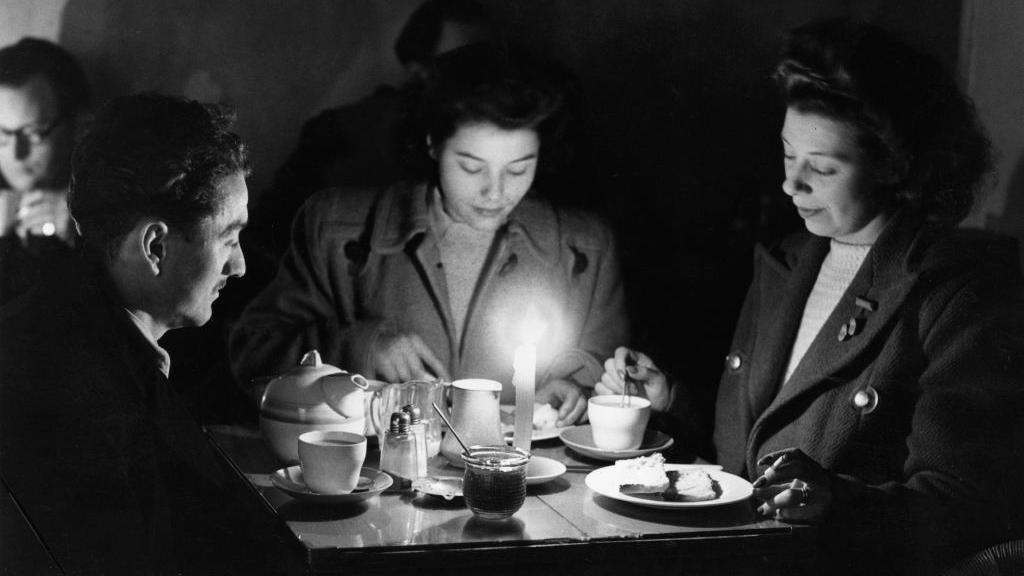
A government "No Power" order was observed between the hours of 9am and 12pm and 2pm and 4pm due to shortages of fuel
The message also said the British Medical Association (BMA) was "about to be state controlled" in 1947.
The founding of the NHS on 5 July 1948 made the UK the envy of the world, but the future of the NHS today is uncertain.
With hospital waiting times passing 800,000 for the first time in Wales, many doctors and nursing staff are doubtful of its longevity.
Full transcript of the panel
This year of Jan Feb 1947
The Great Freeze Up Light and power cut off for 6 hours a day
The country in a hell of a state
No coal in any quantity
No light in some parts of England
Food in short supply
Some talk of 40 hour week for building trade
Linseed oil 21/- a gallon
Gloss Paints 42/- a gallon
When you can get it
And you must have a permit to do any work over £10.00
Fags in very short supply
A ten horse power car cost new about £400.00
A second hand car 10HP cost about £6000.0
And this is a Labour government, happy days if we live long enough
To the person who will read this. I Steve Alford hope that things are much better now. Peter Cowley Now age 16 years also wishes the same to you
Don't go down the mine daddy, there is plenty of coal in the cwtch
Dr T. Davies Lives Here
The BMA about to be state controlled
No football has been played for a month, ground frozen
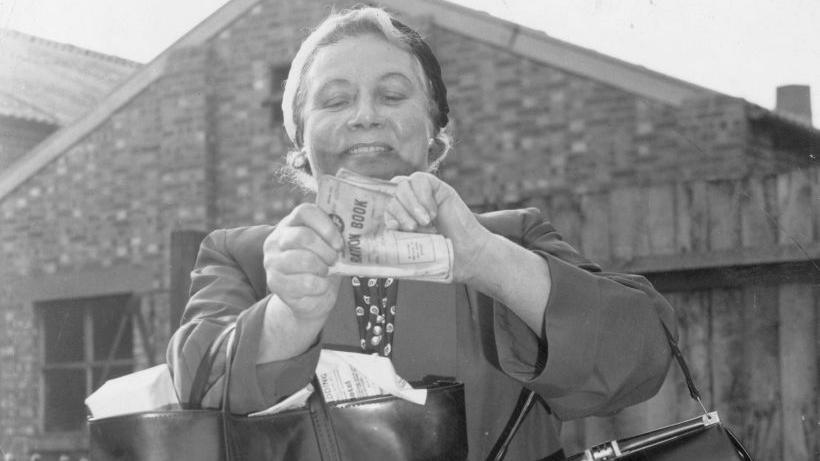
A woman celebrates the end of rationing after fourteen years by tearing up her ration book in 1954
The panel has had interest from the National Museum of Wales in Cardiff to be put up on display as a marker of history, says Mr Yuen and he is thankful to have found it before its luck ran out.
Dr Jones described the discovery as "footsteps in the sands of time" and said people often leave moments of themselves in their homes to be discovered.
"I wonder how many other messages may be waiting to be found," she said.